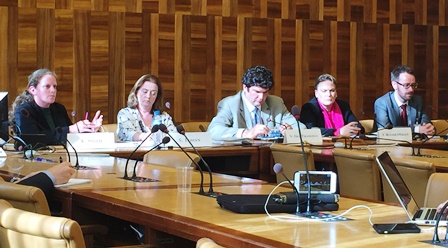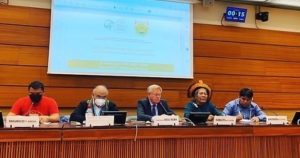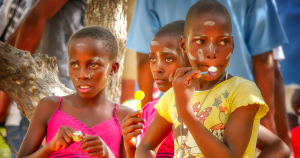Panelists of the meeting, to be chaired by Niccolò Figà-Talamanca, Secretary General No Peace Without Justice, include Tara Reynor O’Grady, Secretary General of Sentinel Human Rights Defenders, Conall Ó Fátharta, Senior Reporter of Irish Examiner, Susan Lohan, Co-Founder of Adoption Right Alliance, Alison Smith, Legal Counsel and Director of the International Criminal Justice Program of No Peace Without Justice.
In 2016, Ireland will celebrate the centenary of the Easter Rising – the defining moment in her birth as an independent nation. Religious and political leaders will join hands and call on Irish people from home and abroad to come together to remember and celebrate the ideals of the 1916 Proclamation. That iconic document promised an Irish Republic which “guarantees religious and civil liberty, equal rights and equal opportunities to all its citizens, and declares its resolve to pursue the happiness and prosperity of the whole nation and of all its parts, cherishing all of the children of the nation equally”.
This is Ireland’s official history –one of freedom earned through sacrifice. Its heroes honoured and never to be forgotten, with monuments in every Irish town. However, there is an unofficial history. The monuments to its heroes are mass graves, silence and secrecy. The Proclamation was not for them. This history involves the incarceration, enslavement and death not because of people’s beliefs, race or class, but because of their gender. It resulted in the establishment of a network of institutions that illegally removed the parental rights of unmarried women as well as their basic human rights and liberty (and their children’s). It involved forced incarceration, forced labour and slavery, the removal of their children for illegal/forced adoptions, medical and vaccine trials without consent. These were the lucky ones. Many more lie in mass graves on the grounds of religious property all over the country. Others lie in unmarked graves in Glasnevin Cemetery in Dublin –a stone’s throw from the tourist trail graves of the Irish heroes who promised “civil liberty, equal rights and equal opportunities to all its citizens”.
For some victims, there has been a modicum of admission, through a State apology issued in 2012, although the report preceding it has been criticised as “incomplete” and lacking “many elements of a prompt, independent, and thorough investigation”. For most of the women and children of Ireland’s unofficial history, there has been no apology, no redress and no acknowledgment of the crimes they endured. They continue to be silenced and their children remain second-class Irish citizens denied a right to their identity and their medical records. This parallel history must also be highlighted during Ireland’s centennial, to recognise and embrace all of Ireland’s heroes and acknowledge the wrongs done so that Ireland can truly become a modern home of equality for all its citizens.
Documentation:
- Program of the event
- Concept note on the event
For further information, please contact Alessandro Manno on alessandro@sentinelhrd.com or Nicola Giovannini (Press & Public Affairs Coordinator) on ngiovannini@npwj.org or +32-2-548-3915.




